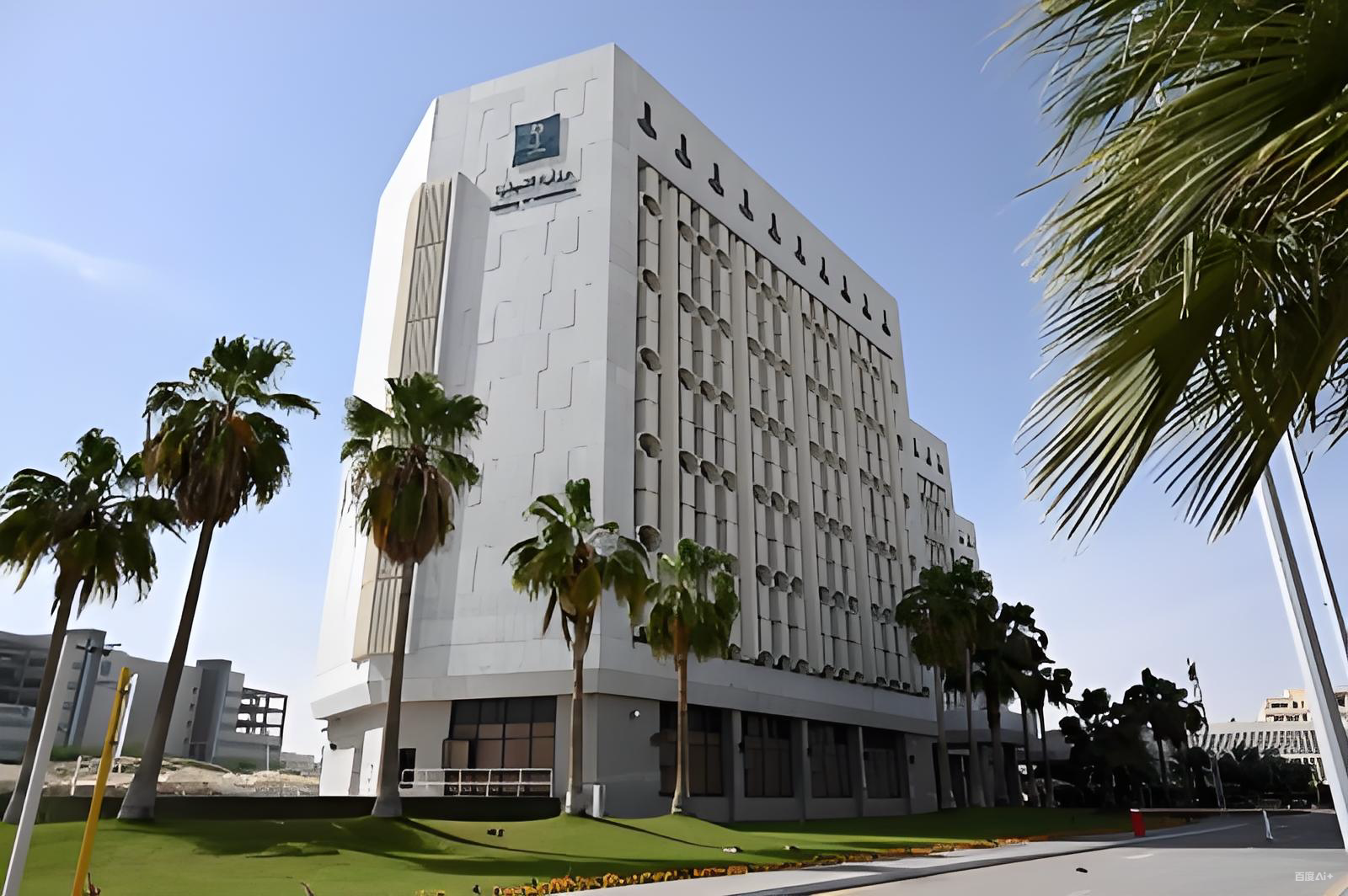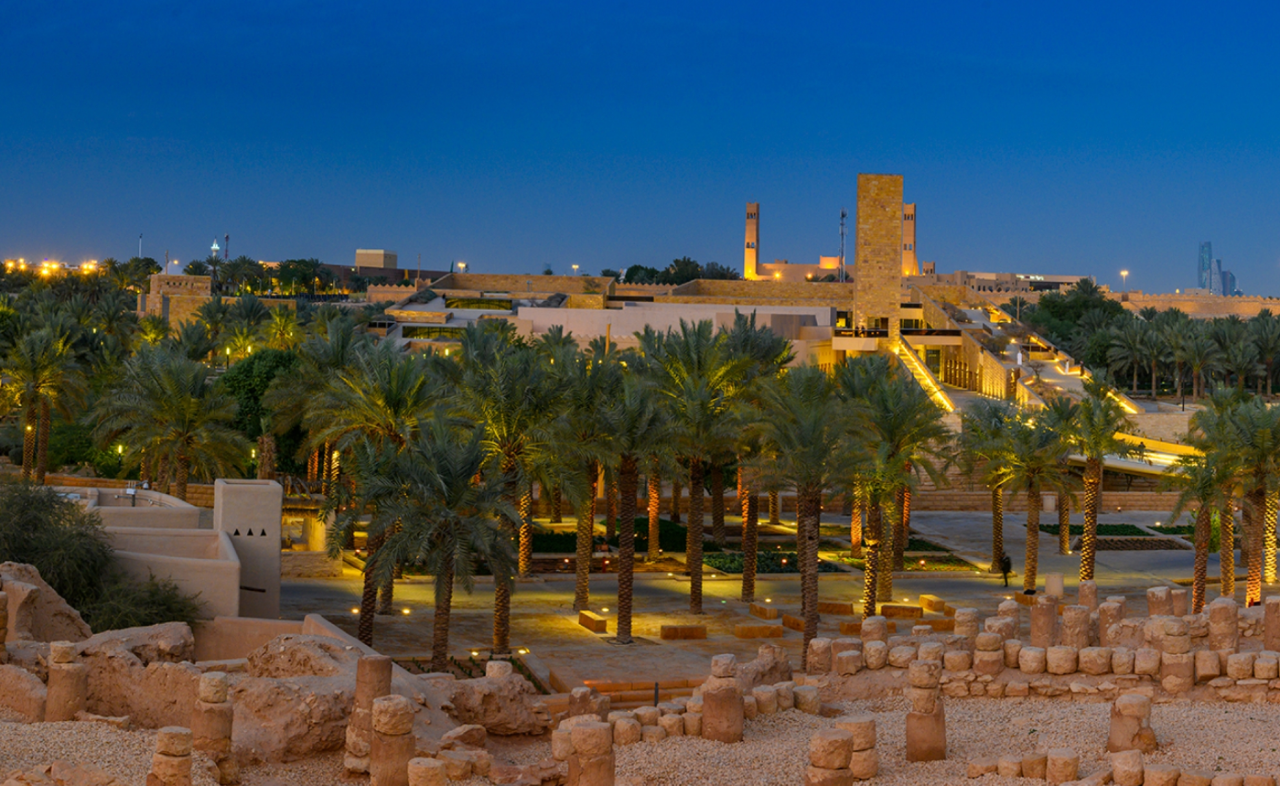Author: Liang Yu
Editor: Zhao Yidan
The Saudi Central Bank has launched a "regulatory sandbox" project, and the NEOM city is deploying blockchain infrastructure. This oil kingdom is quietly igniting a silent revolution in the digital economy.
Saudi Arabia is entering a critical year for its RWA development in 2025. According to The Paper, the Saudi Central Bank's regulatory sandbox program has opened to various innovative entities, and the Capital Market Authority's fintech laboratory has issued a total of 68 fintech experimental licenses, attracting 50 companies to register. Meanwhile, NEOM, a flagship project of the "Vision 2030," has announced the establishment of sovereign-level blockchain infrastructure, becoming the first large-scale blockchain project in the Middle East led by the government. These initiatives collectively signify Saudi Arabia's determination to advance digital financial transformation at the national strategic level.

In the digital financial oasis rising in the desert, Saudi Arabia is quietly rewriting the rules of real asset tokenization in the Middle East through pilot projects like real estate tokenization.
I. Saudi RWA Development Path in a Global Perspective
From the perspective of the global regulatory landscape, different countries are showing various development paths in the RWA field. The U.S. Securities and Exchange Commission continues its case law tradition, gradually building a regulatory framework through specific cases. This model, while flexible, lacks relative certainty. The Monetary Authority of Singapore adopts a more systematic regulatory approach, providing clear guidance through documents like the "Digital Token Offering Guidelines." Against this global backdrop, Saudi Arabia has chosen a unique development path, distinct from the traditional regulatory thinking of Western countries and the more aggressive open strategies of some Asian nations.
The regional comparison between Saudi Arabia and the UAE is particularly striking. According to public information, the UAE has attracted a large number of digital asset companies with the advanced regulatory framework of the Dubai International Financial Centre and the Abu Dhabi Global Market. In contrast, Saudi Arabia leverages its scale advantage as the largest economy in the Middle East, demonstrating a stronger national strategic orientation. Notably, the Project Aber central bank digital currency pilot project, jointly promoted by Saudi Arabia and the UAE, shows the potential for regional collaborative development. This competitive yet cooperative pattern is making the Middle East an important testing ground for global RWA development and provides a unique regional environment for Saudi Arabia's RWA development.
II. Strategic Opportunities and Basic Conditions of the Saudi RWA Market
The rise of the Saudi RWA market is closely linked to the modernization of its financial infrastructure. The payment system upgrade project promoted by the Saudi Central Bank provides a solid foundation for digital asset trading, while the Capital Market Authority's revision of the "Investment Fund Regulations" creates a favorable institutional environment for digital investment tools. These systemic reform measures together constitute the three pillars of the Saudi RWA market's development: policy support certainty, advanced technological readiness, and growing market demand.
According to the "Vision 2030" framework, the government views asset digitization as an important way to improve financial market efficiency and attract foreign investment. This policy direction provides clear guidance for RWA development. Meanwhile, Saudi Arabia's unique demographic structure provides a market foundation for RWA development. Over 70% of the population is under 35 years old, and these young groups have a natural acceptance of digital technology, creating favorable conditions for innovative financial products. The tokenization of partial ownership in RWA effectively lowers the investment threshold, allowing ordinary people to participate in high-value asset investments with relatively low amounts, aligning with Saudi Arabia's national goal of promoting financial inclusion.
III. Collaborative Innovation and Institutional Design of the Regulatory Framework
Saudi Arabia adopts a diversified regulatory model to construct its RWA regulatory system, with the Saudi Central Bank and the Capital Market Authority playing key roles in this system. The Saudi Central Bank is primarily responsible for the regulation of payment systems, banking institutions, and some digital businesses, with its regulatory authority derived from the "Saudi Central Bank Law" and related regulations. The Capital Market Authority focuses on the regulation of capital markets and investment services, holding significant regulatory responsibilities for RWA projects involving security tokens. This clearly defined regulatory structure reflects the Saudi authorities' prudent balance between encouraging innovation and controlling risks.

The regulatory sandbox mechanism of the Saudi Central Bank provides an important testing platform for RWA innovation. This mechanism is open to four types of innovators: innovators licensed by the Saudi Central Bank, unlicensed local fintech companies, and unlicensed international fintech companies. Meanwhile, the Saudi Central Bank has also clearly defined situations that are not suitable for entry into the regulatory sandbox, including projects lacking innovation or technological maturity. These admission standards ensure the quality and effectiveness of sandbox testing, providing development space for truly valuable innovative projects.
The Capital Market Authority is also actively promoting regulatory innovation. As of the end of the second quarter of 2025, the CMA has issued a total of 68 fintech experimental licenses, and among the 50 companies registered in its fintech laboratory, 36 have entered substantive operational stages, with 5 successfully graduating. This data reflects the substantial progress Saudi Arabia has made in building a fintech ecosystem.
IV. Implementation Progress and Strategic Significance of Government-Led Projects
The regulatory sandbox project of the Saudi Central Bank has become an important platform for the government to promote RWA development. According to sandbox rules, innovators can access this platform through various paths. For unlicensed international fintech companies, they can choose to apply directly to the regulatory sandbox, and upon acceptance, register with the Saudi Ministry of Investment and the Ministry of Commerce to establish a legal entity; or they can enter the sandbox indirectly by reaching agreements with companies licensed by the Saudi Central Bank. This flexible arrangement demonstrates Saudi Arabia's emphasis on regulatory responsibility while attracting international innovative forces.
The blockchain infrastructure project in NEOM is another important practice for Saudi Arabia in the RWA field. As a flagship project of "Vision 2030," NEOM plans to invest $500 billion, with blockchain infrastructure seen as the core technology supporting its digital economy system. According to public information, this blockchain platform will support functions such as asset registration, transaction settlement, and compliance monitoring, laying the technological foundation for larger-scale asset tokenization in the future. This project is entirely government-led and closely linked to Saudi Arabia's national transformation strategy, reflecting the government's core role in RWA development.
V. Compliance Pathways and Systemic Risk Management
For institutions seeking to carry out RWA projects in Saudi Arabia, following a phased compliance pathway is crucial. First, it is necessary to conduct pre-consultation with regulatory authorities to clarify the regulatory scope of the project. Then, entering the regulatory sandbox application and testing phase requires submitting a detailed testing plan, including clear objectives, timelines, and risk management measures. Finally, upon successfully completing sandbox testing, the project can obtain limited authorization and ultimately transition to full operation after meeting all regulatory requirements.

In this process, institutions need to pay special attention to multiple risk challenges. Regulatory classification uncertainty is the primary challenge, as RWA projects often exist in the gray area of traditional regulatory classifications, potentially involving multiple regulatory domains such as securities, payments, and investments. Compatibility of technological infrastructure is another significant challenge, as the technical compatibility between blockchain and traditional financial infrastructure, as well as meeting regulatory requirements for system security and stability, must be carefully addressed. Cross-border regulatory compliance cannot be overlooked either, as RWA projects involving cross-border transactions may trigger regulatory compliance issues across multiple jurisdictions.
It is noteworthy that Saudi regulatory authorities have recognized these challenges and are seeking solutions through mechanisms like the regulatory sandbox. The sandbox rules explicitly state that for Saudi Central Bank licensed companies collaborating with unlicensed innovators, the Saudi Central Bank will investigate the allocation of responsibilities between the licensed and unlicensed parties. This prudent attitude reflects Saudi Arabia's high regard for risk management while promoting innovation.
VI. Future Outlook and Development Path of Saudi RWA
As RWA continues to develop in Saudi Arabia and the broader Middle East, the regulatory environment is expected to exhibit three distinct trends. The introduction of specialized regulatory frameworks will be a primary trend, with Saudi regulatory authorities likely to launch new regulatory categories specifically targeting digital assets and tokenized assets. Strengthening regulatory collaboration is another important trend, with coordination mechanisms among the Saudi Central Bank, the Capital Market Authority, and other relevant regulatory bodies becoming more institutionalized. The alignment with international standards is also significant, as Saudi Arabia, as a G20 member, will continue to align its financial regulations with international standards.
Based on current technological, market, and policy trends, the future development of the Saudi RWA market will show a diversified development trend. The diversification of asset classes will continue to advance, and in addition to the already effective real estate sector, Saudi Arabia's tokenization potential in infrastructure, renewable energy (such as the NEOM project), and cultural tourism assets will gradually be released. The participation of traditional financial institutions is expected to increase, with banks and asset management companies likely to engage more actively in building the RWA ecosystem. Cross-border connectivity will become an important development direction, with Saudi Arabia potentially establishing a regional digital asset trading platform through regulatory collaboration with neighboring countries.
For market participants, the short-term focus should be on asset classes with clear compliance pathways, fully utilizing the regulatory sandbox for concept validation; in the medium term, as the regulatory framework improves, expanding to more asset classes and considering applying for proprietary licenses; in the long term, building a comprehensive digital asset service platform, exploring cross-border connectivity opportunities, and promoting positive interaction between technological innovation and regulatory innovation.
Saudi Arabia's RWA development path showcases a unique balancing act—seeking the right balance between traditional financial regulation and modern blockchain technology, between national development strategy and market innovation vitality, and between local practical characteristics and alignment with international standards. As the "Vision 2030" progresses, the Saudi RWA market is expected to play an increasingly important role in connecting traditional assets with digital finance. Institutions that can layout early, actively communicate with regulatory authorities, and build comprehensive compliance capabilities are most likely to benefit from the rapid development of this emerging field.
Some sources of information:
· "Saudi Arabia Extends the Implementation Period of the 'Cancellation of Tax Penalties and Exemption from Economic Penalties Program'"
· "Saudi Arabia Cryptocurrency Regulatory Guidelines: Practical Manual for Compliant Trading"
· "How Can the Middle East Break Through RWA? A Global Testing Ground from Capital Drive to Regulatory Implementation!"
免责声明:本文章仅代表作者个人观点,不代表本平台的立场和观点。本文章仅供信息分享,不构成对任何人的任何投资建议。用户与作者之间的任何争议,与本平台无关。如网页中刊载的文章或图片涉及侵权,请提供相关的权利证明和身份证明发送邮件到support@aicoin.com,本平台相关工作人员将会进行核查。




